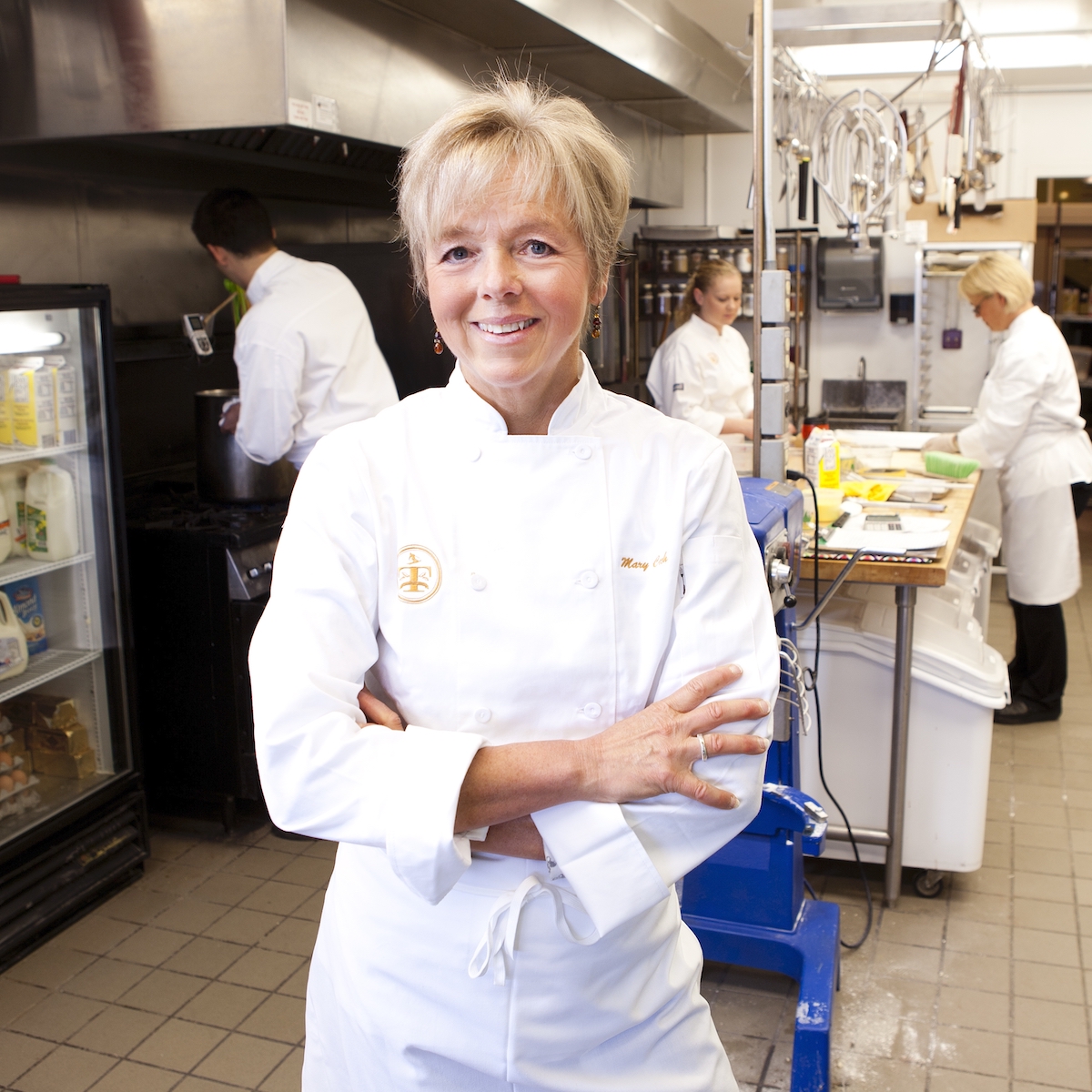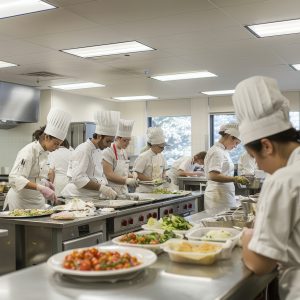Mistake #2: Not Doing Your Homework
Once you know what you want from your culinary education experience, you must find the right school to get you exactly that. Unfortunately, for most of us, this isn’t as easy as opening the Yellow Pages and seeing what schools are located within city limits. Choosing a culinary school that offers all the right qualifications – and at the right price – can be time-consuming.
Step One: Research Ahead of Time
No matter what else you do, research culinary schools ahead of time. There are several great resources online, and we suggest you check out our site, which breaks down each school’s qualities and enables you to make a more informed decision. It doesn’t matter if you’re looking at a major international name or a small school nearby – these resources get you the information you need quickly and effectively.
Step Two: Consider Location, Location, Location
Location matters more in culinary school than you might think. While you can get a good education in many states, New England, New York, and California are the top places to get a top-tier culinary education.
Schools in these areas tend to be more expensive than those in the middle of the country. However, this is often the way to go if you want to be among the best. These regions have a high number and caliber of restaurants, leading to better job opportunities after graduation.
If you live in one of these culinary hotspots, consider how far you’re willing to travel and how much tuition you can afford. For others, weigh the costs of moving, living expenses, and the inconvenience of relocating against the benefits of the school. A prestigious New York school might have higher tuition, and your room and board costs will likely increase.
Housing is another important factor. Some culinary schools offer on-site student housing, like traditional universities. Others are located in major city centers. Before moving across the country, make sure you have a place to live and can afford it.
Step Three: Learn the School’s Specifics
No matter how prestigious, each culinary school has its own benefits and drawbacks. Use the following list as a guide to determine the pros and cons of each. If you can’t find readily available information on these characteristics, be wary and ask around. All reliable schools should post them on their websites or in brochure format.
Entry Requirements: Different culinary schools offer varying degrees of difficulty for getting in. Do you need a high school diploma? Is it a traditional four-year university with entrance exams? You’ll also want to watch out for large fees associated with applying, as this might indicate a less-than-reputable school.
Program Length: Culinary schools typically range from nine months to four years. If you are looking at a longer program, ensure there is some Associate or Bachelor’s degree at the end.
Class Schedule: Day, night, and flexible classes are common in culinary school. Make sure you can juggle school, work, and life.
Costs: Depending on where you go, culinary school can cost from a few thousand to several tens of thousands of dollars annually – and this might not include additional expenses or room and board. Calculate the total costs annually to avoid being unpleasantly surprised.
Financial Aid: Culinary school can get expensive. Does the school have its own financial aid programs? Does it accept federal grants and loans? What assistance does it provide, and is the information available before or after you’ve already signed on the dotted line?
Class Sizes: The hard-and-fast rule is that the smaller the class, the better your education. If a class is primarily lecture-based, a large class size is okay. For hands-on learning, you want the smallest class possible to get more one-on-one time with your instructor.
Faculty: The quality of your instructors is a large part of the quality of your education. Are there recognizable names among the staff? What degrees/accomplishments are they required to have? Do they work in the local culinary community and have contacts or networks you can tap into?
Facilities: You want a school with the most up-to-date and industry-standard equipment. While learning traditional techniques is always a good way to round out an education, you must also be able to learn what is used in most restaurants and kitchens today.
Reputation: This is one of the most important aspects of choosing a culinary school. Word-of-mouth and reputation are everything, no matter what the school promises or guarantees. Always check with current students, alumni, and even area restaurants to learn the general consensus about the school.
Degrees: Some culinary schools offer certifications, while others offer Associate or Bachelor’s degrees. Most degrees are standard everywhere, but be wary of school-based certifications. Unless it’s coming from a recognized name, certifications often mean little out in the larger culinary community.
Accreditation: Schools should always be accredited by the Accrediting Commission of Career Schools and Colleges of Technology or the Accrediting Council for Independent Colleges and Schools. For more advanced culinary training, looking for accreditation through the American Culinary Federation Foundation Accrediting Commission is best.
If you think you might leave school before you’ve finished, you’ll also want to look for regional accreditation, which is the only way to be able to transfer credits from one school to another.
Externships/Internships: Real-world training is a must in the culinary field. Try to avoid schools that don’t offer on-the-job practice through externships or internships. However, don’t expect to get paid for these since few schools provide that bonus.
Job Placement: Job placement services are sort of the icing on the cake. While no school can guarantee you’ll have a job after graduation, many schools offer career guidance in resume assistance, interview tips, or help locating jobs.
Is A Culinary Career Right For Me?












